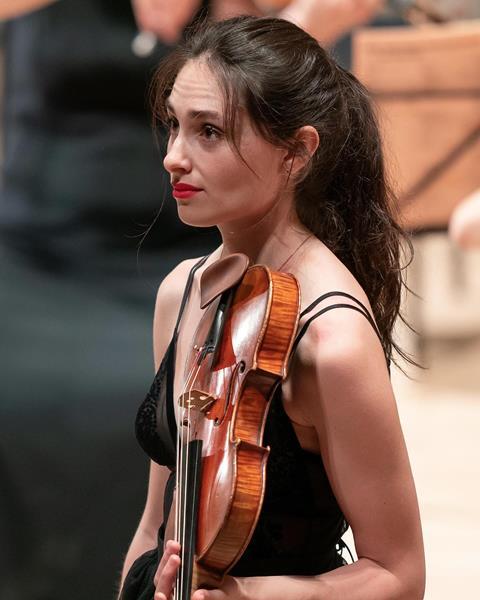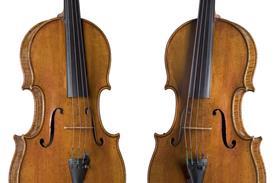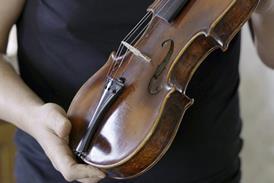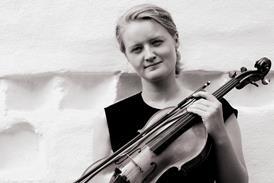The violinist describes being spoken to ‘like a piece of garbage’ by Ryanair staff, as she attempted to bring her Vuillaume into the cabin

Esther Abrami has announced that she was barred from travelling with her violin on a Ryanair flight, saying she experienced ’rudeness and public humiliation’ from the airline.
Abrami was travelling from Marseille to Berlin to record her third album with Sony Classical. Just before boarding the flight, she was stopped and told not to board the aircraft with her violin.
’I offered to buy an extra seat, they said the flight was closed already and I could not buy an extra seat anymore (despite the flight not being full),’ the violinist said on social media.
She said that the only option offered to her was to check the instrument in the hold with luggage or leave it at the airport.
Abrami explained the value and fragility of her Jean-Baptiste Vuillaume violin, which is 200 years old, saying she ’begged them, explaining I was recording this very same day for my album, telling that I had flown an incredible number of times with this company and never experienced this.
’It came to the point where I even offered to take my violin out of the case, keeping its fabric protection and just carry it by hand and keeping it on me during the whole flight whilst they put the case in the cargo.’
Airline staff asked Abrami to open the case on the floor to measure the violin in the area where suitcases are measured. ’The requirements for the cabin luggage - which I had paid for already - is a length of 55cm. My violin measures 56cm, it fitted diagonally, and otherwise was 1cm over. Even this was refused.’
With no solution offered, Abrami opted to book a last-minute ticket on another flight with a different airline on the same day, in order to make her recording session.
She acknowledged her position to be able to do so: ’Not every musician can have this opportunity. Missing a flight often means losing a vital work opportunity, whether it’s a gig, a recording session, or an important meeting.
’In an industry where every opportunity counts, such an incident can have a ripple effect, impacting reputation and future prospects. This is simply inacceptable [sic].’
Abrami’s post on social media prompted fury from her large following: ’@ryanair losing business. Most musicians I know refuse to fly Ryanair with instruments because of instances like this,’ said one follower.
Another said: ’This is really bad! Musicians fly so frequently, air companies should educate their employees that taking a very light instrument instead of a heavy suitcase as hand luggage is absolutely the bare minimum of musicians’ rights. It takes way less space in the overhead locker and doesn’t weight anywhere near the allowed maximum.’
The incident follows that of cellist Sophie Kauer, who was told by Swiss Air her cello recently was ‘no longer welcome to travel’ on a booked flight, despite having booked a separate seat for the instrument.
Read: ‘Swiss Air, if you don’t want cellos on board, just say so’: TÁR cellist suffers flight woes
Read: Cellist Sheku Kanneh-Mason barred from British Airways flight
The number one source for playing and teaching books, guides, CDs, calendars and back issues of the magazine.
In The Best of Technique you’ll discover the top playing tips of the world’s leading string players and teachers. It’s packed full of exercises for students, plus examples from the standard repertoire to show you how to integrate the technique into your playing.
The Strad’s Masterclass series brings together the finest string players with some of the greatest string works ever written. Always one of our most popular sections, Masterclass has been an invaluable aid to aspiring soloists, chamber musicians and string teachers since the 1990s.
American collector David L. Fulton amassed one of the 20th century’s finest collections of stringed instruments. This year’s calendar pays tribute to some of these priceless treasures, including Yehudi Menuhin’s celebrated ‘Lord Wilton’ Guarneri, the Carlo Bergonzi once played by Fritz Kreisler, and four instruments by Antonio Stradivari.





































17 Readers' comments